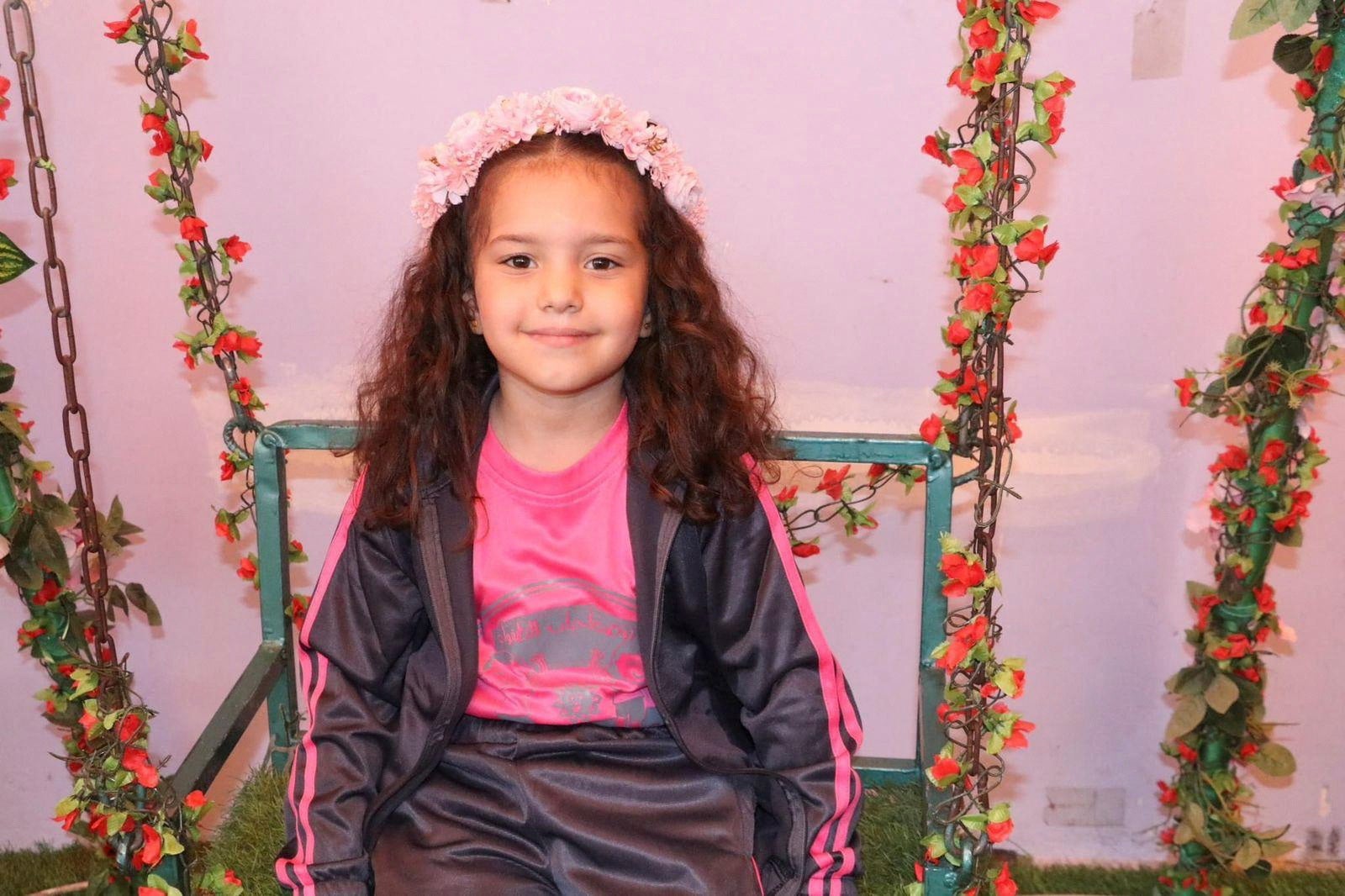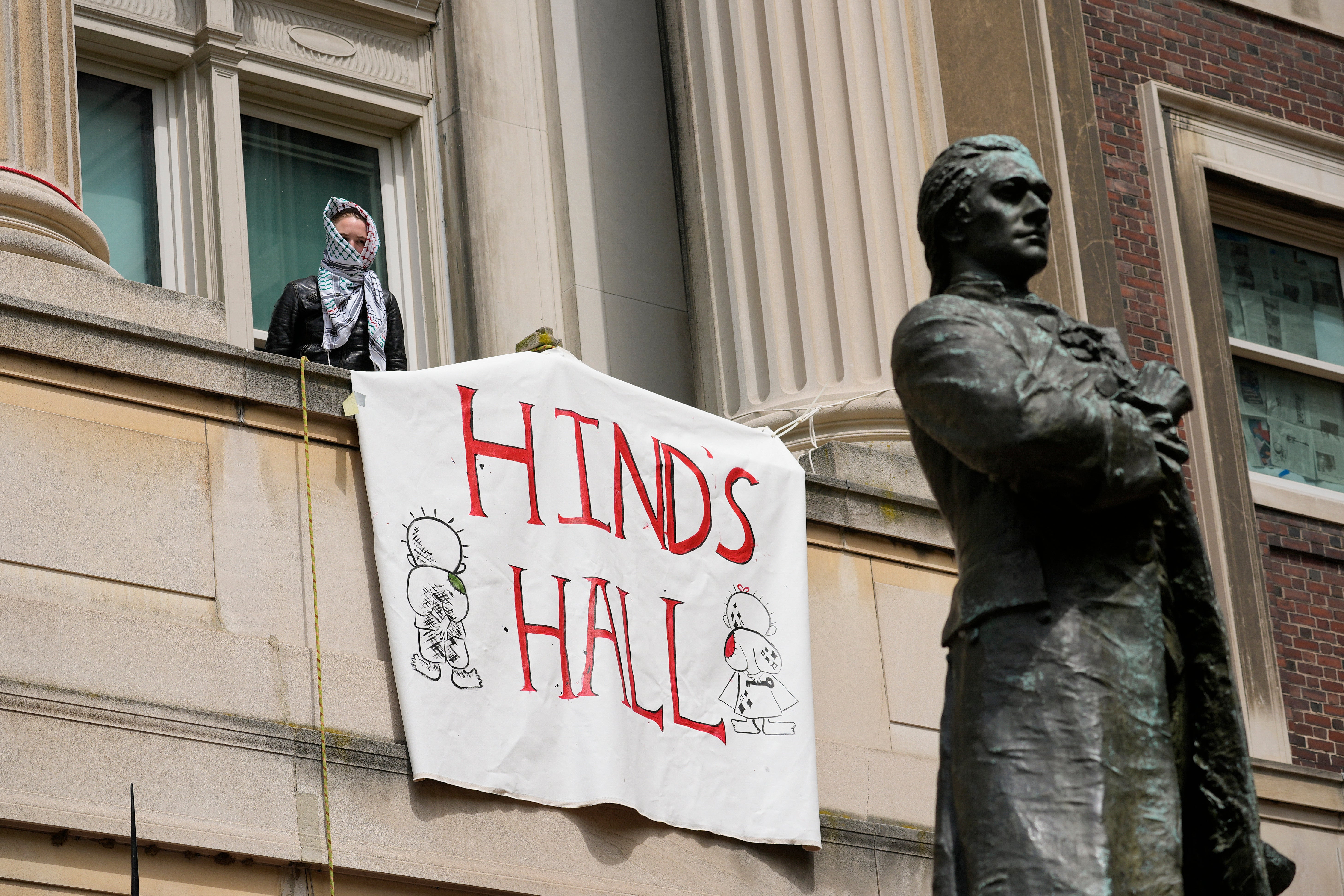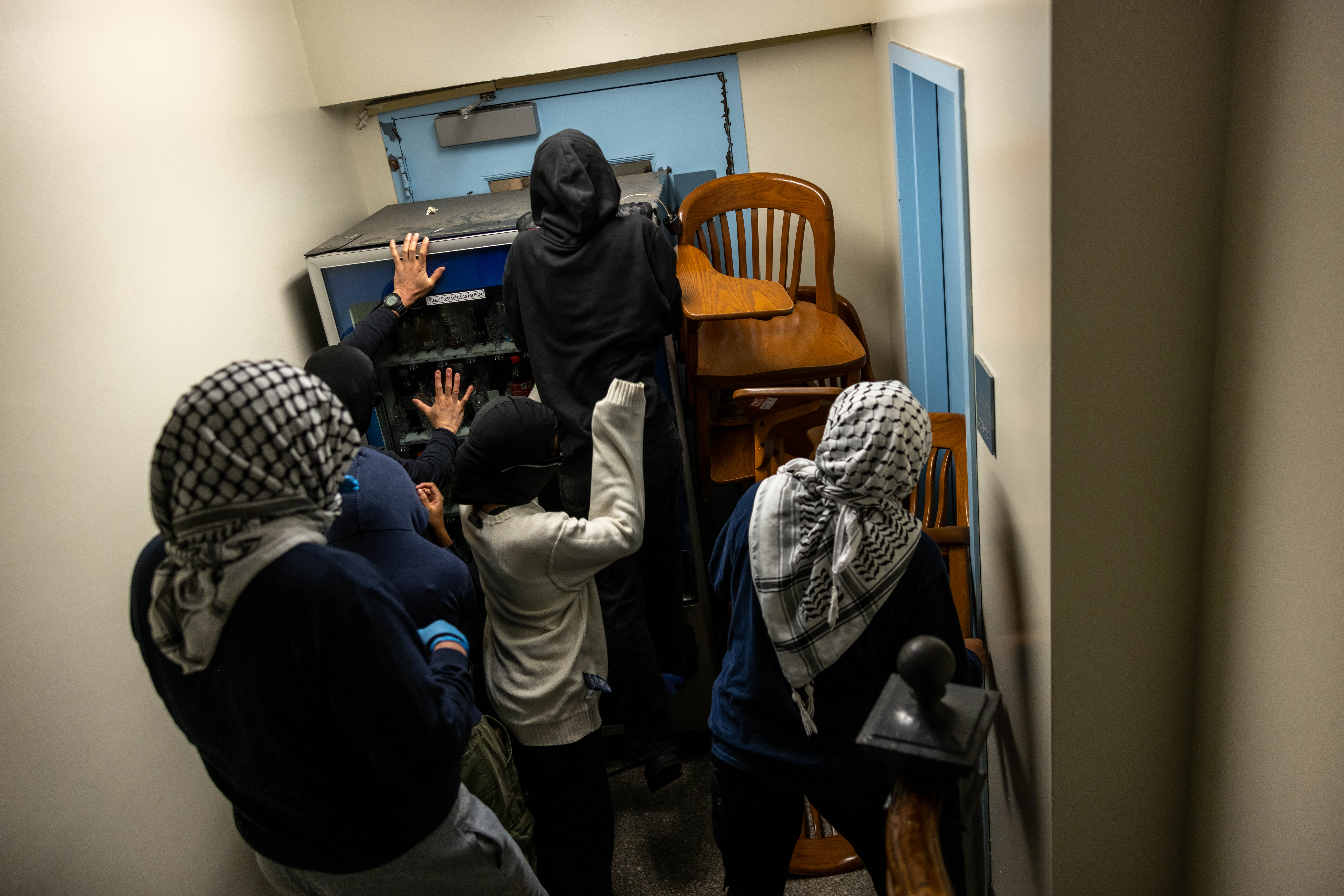Why have Columbia students renamed the college hall they occupied Hinds Hall?
Six-year-old Palestinian girl Hind Rajab became a symbol of the civilian cost of the Israel-Hamas war when her body was found alongside family members in a destroyed car in Gaza – days after she had called emergency services begging to be rescued
Your support helps us to tell the story
From reproductive rights to climate change to Big Tech, The Independent is on the ground when the story is developing. Whether it's investigating the financials of Elon Musk's pro-Trump PAC or producing our latest documentary, 'The A Word', which shines a light on the American women fighting for reproductive rights, we know how important it is to parse out the facts from the messaging.
At such a critical moment in US history, we need reporters on the ground. Your donation allows us to keep sending journalists to speak to both sides of the story.
The Independent is trusted by Americans across the entire political spectrum. And unlike many other quality news outlets, we choose not to lock Americans out of our reporting and analysis with paywalls. We believe quality journalism should be available to everyone, paid for by those who can afford it.
Your support makes all the difference.Students protesting Israel’s war in Gaza have occupied Columbia University’s Hamilton Hall, an academic building that is home to the school's undergraduate Columbia College and the Dean’s office.
After moving through the building, student protesters unfurled a banner over Hamilton Hall's fascade. The banner read "Hinds Hall”.
The unofficial renaming pays tribute to Hind Rajab, a six-year-old girl Palestinian girl who — along with her family and the EMTs who tried to save her — was killed by Israeli tanks.
The little girl had phoned emergency services and, over a period of more than three hours, begged for help after her family were killed around her in the car they were using to try to escape the war zone. Paramedics did arrive – but days later their ambulance was found destroyed near Hind’s family’s car. Two emergency workers were found dead.
Hind’s death has become a symbol of the human cost of the Israel-Hamas war.
As Columbia students continue to demonstrate despite threats of suspension and expulsion from the university, Hind's name adorning the building serves as a reminder of the point behind the protest.
The killing of Hind Rajab
Hind was with family members – her aunt, uncle, and her three cousins – racing in their family car to outrun Israeli tanks and escape the city in late January.
Israeli tanks are believed to have fired at the car, killing all of Hind's relatives, but leaving her alive. She called out to emergency services for help from a cellphone, but her call ended abruptly, according to the BBC.

Nearly two weeks later, her relatives found the bodies of Hind, her family, and a pair of Palestine Red Crescent Society EMTs among the rubble and wreckage near the spot where they were killed.
The family's black Kia was blown apart and riddled with bullet holes.
Hind's body was inside, and, according to the Red Crescent, she appeared to have been killed by gunfire and shelling.
The PRCS has accused Israel of intentionally destroying the ambulance and killing its paramedics.
"The [Israeli] occupation deliberately targeted the Red Crescent crew despite obtaining prior coordination to allow the ambulance to arrive at the scene to rescue the child Hind," the organisation said in a statement.

The group told the BBC that it had previously coordinated with the Israeli army to obtain assurances that they could safely retrieve Hind. Those alleged agreements were reportedly not honoured.
After she was discovered, her mother called for accountability for Israel.
"For every person who heard my voice and my daughter's pleading voice, yet did not rescue her, I will question them before God on the Day of Judgement," she told the BBC. "Netanyahu, Biden, and all those who collaborated against us, against Gaza and its people, I pray against them from the depths of my heart."
The Israeli military denied involvement in the attack, stating that IDF forces “were not present near the vehicle or within the firing range of the described vehicle in which the girl was found", according to the New York Times.
The PRCS has rejected Israel's denial. Nibal Farsakh, a spokesperson for the PRCS, told the BBC that their paramedics could see the spot where Hind was trapped, but that there was nonstop gunfire making a rescue impossible.
This month the US State Department said it would question the Israeli government about the circumstances of Hind’s death and those of her family members and the paramedics trying to save her.
Renaming Hamilton Hall
On Monday, 29 April, Columbia University, the school's president, Minouche Shafik, said negotiations with the protesters had broken down, and affirmed that the university would not divest from Israel. She offered the protesters a final chance to disperse before students were punished for remaining on campus; if they left before 2pm and signed an agreement to abide by university guidelines, they would be spared suspension.
Hundreds of students and faculty gathered to defy the deadline, and late on Monday students overtook Hamilton Hall.
On Tuesday, Columbia officials issued warnings that students involved in the occupation of the academic building would face expulsion if they did not leave.
An anonymous student who spoke to the press on Tuesday called on the school's administrators to de-escalate the response to protests.
“To Columbia’s administrators and trustees: Please do not incite another Kent or Jackson State by bringing soldiers and police officers with weapons onto our campus,” the student said. “If you do so, student blood will be on your hands.”

Hamilton Hall was not a random target for the protesters’ continued demonstrations; in 1968, students protesting racism against Black Americans and the Vietnam war occupied the hall in protest. Less than a decade later, in 1985, another group of students protesting apartheid in South Africa stormed the hall and gave it a new name. During that protest, the hall was renamed "Mandela Hall”, the New York Times reports.
Response to the hall’s occupation
The protesters have faced sharp criticism from conservatives, some of whom have described their demonstrations as antisemitic, despite the presence of Jewish students among those protesting Israel's war. House Speaker Mike Johnson visited the campus last week and called for the university's president to resign if she was unable to quash the protest.
Joe Biden joined in the criticism of the protesters after they took Hamilton Hall. National Security Council Spokesman John Kirby, speaking on behalf of the Biden administration, said the "president believes that forcibly taking over a building on campus is absolutely the wrong approach" during a press briefing on Tuesday.
After the 2pm deadline passed on Monday, student protest leaders released a statement saying they would not leave unless they were removed by force.
Hundreds of students and protesters across the country have been arrested since the Columbia Gaza protests began approximately two weeks ago. Since then, protests against Israel's war in Gaza have spread across campuses in the US. There have also been similar protests in the UK, Germany, Italy and France.



Join our commenting forum
Join thought-provoking conversations, follow other Independent readers and see their replies
Comments